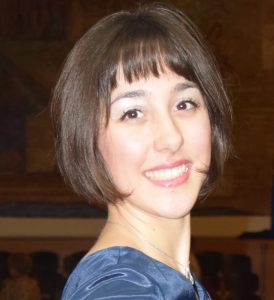
In my Postgraduate Research Placement I had the opportunity to work on the project “Women and the Book” led by Dr. Elizabeth L’Estrange and Dr. Emily Wingfield. The project reassesses the legacy of Susan Groag Bell’s influential essay “Medieval Women Book Owners: Arbiters of Lay Piety and Ambassadors of Culture”, published in 1982, and it aims to look beyond the traditionally late-medieval, Anglo-Franco-Burgundian focus on aristocratic women’s book ownership and patronage, and to explore what women were reading, writing and commissioning in other geographical and chronological frameworks.
One of my main duties was to track down bibliography for this barely explored theme and maintain a WordPress website. This responsibility not only honed my IT skills, but also sharpened my capability for finding a great amount of bibliography in a small period of time. Apart from being rewarding, this was the most interesting part of the project for me, because it granted me the opportunity to become familiar with an area which I had never explored before. It has been amazing to realise that women during the Middle Ages — an era that was and is still thought to have been politically and culturally dominated by males — from Byzantium to Scandinavia, Scotland and the Iberian peninsula, did express themselves in writing, that they copied manuscripts and read books. I also unearthed some similar projects going on in Europe and America, which led me to the conclusion that my ideas about women’s position in the Middle Ages were rather misguided.
Being part of the project also gave me the chance to develop my own research; I am particularly thankful to Dr. Elizabeth L’Estrange for her kindness and co-operation, as I had the chance to discuss with her at least once per week my findings and any challenging points that I may have found. I have always been keen on independent research, but it has been the first time that I was part of such a big project and thus, able to make my own contribution in this huge puzzle! The moral satisfaction I gained is indescribable; I felt that we are constructing a piano: each key is independent and unique, but its contribution to the whole instrument is invaluable!
As one of my professional dreams is to continue further with research, I would be very interested in expanding on women’s relationship with the book, especially during the Italian and Greek Renaissance, for this is an artistic period that inspires me and which I am passionate about. Certainly, being part of the project “Women and the Book” has broadened my research horizons!
Maria Ester Portokali, MRes Modern Greek Studies
